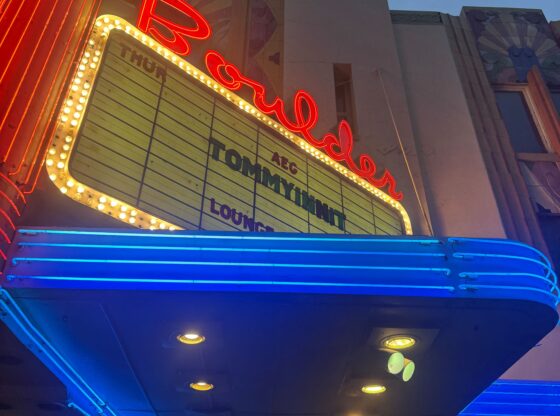“The only thing we have to fear is fear itself,” said Franklin D. Roosevelt in his first inaugural address.
Have we as Americans heeded this wise advice?
“The message today seems to be “be afraid, be very afraid,” says Jason Crow, a 2009 J.D. candidate and co-president of the Sturm College of Law’s chapter of the ACLU.
We as Americans seem to be afraid all the time. Just turn on your evening news and you will hear teasers like, “Find out what deadly killer lurks in your basement.” It turns out we should definitively feel terrorized by mold. Everything and anything can kill you. That rare flesh-eating disease, that recalled peanut butter or that brain-tumor-inducing cell phone is only one a few of the things Americans add to their lists of fear including terrorism, natural disasters and pandemics. What Americans should really be concerned about is things that are in their control to change and truly and deeply affect their lives.
“Fear and complacency are deadly combinations,” said Crow.
The things we should worry about are often swept under the rug. There are warnings on the news saying “Who is stealing your identity now?” What they do not mention is that the US government is the culprit. The government is creating a giant national database that will be like M&M’s to a chocoholic for identity thieves, corporations and those who wish to curtail civil liberties for their own gain.
The Real ID Act will require states to create new driver’s licenses to comply with new federal regulations and that will allow information to go into national databases in May 2008. It was created for national security purposes and partially on the basis that the 9/11 hijackers did have legitimate state driver’s licenses.
It will create huge banks of information compiled from the DMV on every person in the country with a state ID. All the information from your birth certificate or Social Security card that you will show at the DMV will go into this database. Currently, states maintain their own systems or databases independent of the federal government. It also means you must have one of these cards if you plan to do things like fly after 2008.
States have the burden of implementing these massive changes and if you know bureaucracy that means a lot of hassle. In fact, Washington became the fifth state to oppose the law by passing legislation that says it will not implement the system due to enormous costs of implementation and privacy concerns.
The new national IDs will also have tiny radio transmitters, known as RFID, as security devices. These devices can potentially be tracked from a distance.
“I see this as another ‘knee jerk’ reaction to the threat of terrorism that will not have the intended effect and will have many unintended consequences,” said Crow.
One of the consequences is invasion of privacy. With a nationalized ID card, government could use this information to unfairly target specific individuals. Critics argue that having nationalized ID cards recalls identification systems of Nazi Germany or Rwanda.
Crow, as a veteran of both Iraq and Afghanistan, thinks security does not need to inhibit civil liberties.
“Our freedoms are what make this country great. If we defeat the terrorists but lose ourselves in the process then we have only won a Pyrrhic victory,” he said.











